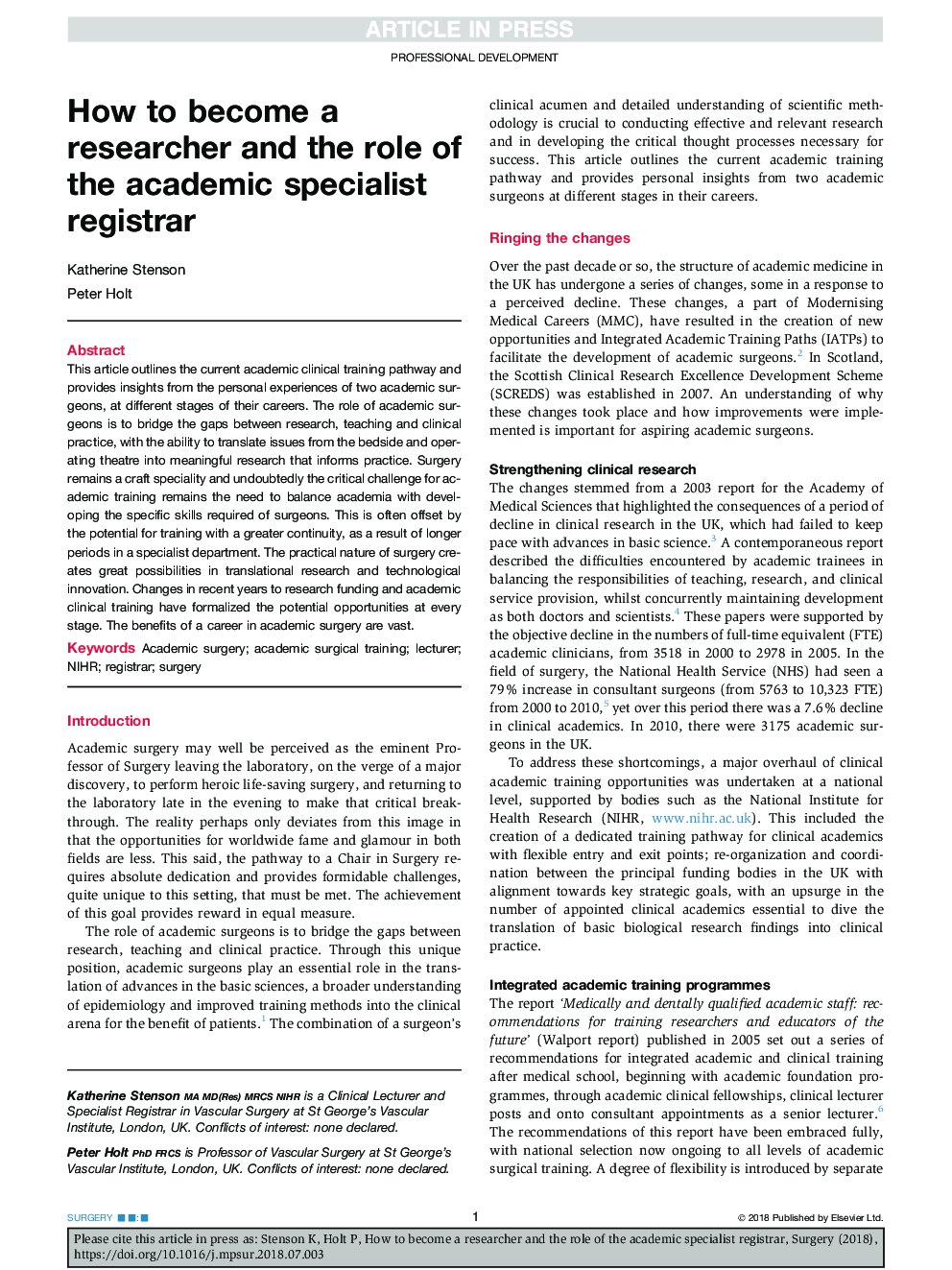| Article ID | Journal | Published Year | Pages | File Type |
|---|---|---|---|---|
| 10219209 | Surgery (Oxford) | 2018 | 5 Pages |
Abstract
This article outlines the current academic clinical training pathway and provides insights from the personal experiences of two academic surgeons, at different stages of their careers. The role of academic surgeons is to bridge the gaps between research, teaching and clinical practice, with the ability to translate issues from the bedside and operating theatre into meaningful research that informs practice. Surgery remains a craft speciality and undoubtedly the critical challenge for academic training remains the need to balance academia with developing the specific skills required of surgeons. This is often offset by the potential for training with a greater continuity, as a result of longer periods in a specialist department. The practical nature of surgery creates great possibilities in translational research and technological innovation. Changes in recent years to research funding and academic clinical training have formalized the potential opportunities at every stage. The benefits of a career in academic surgery are vast.
Related Topics
Health Sciences
Medicine and Dentistry
Medicine and Dentistry (General)
Authors
Katherine Stenson, Peter Holt,
